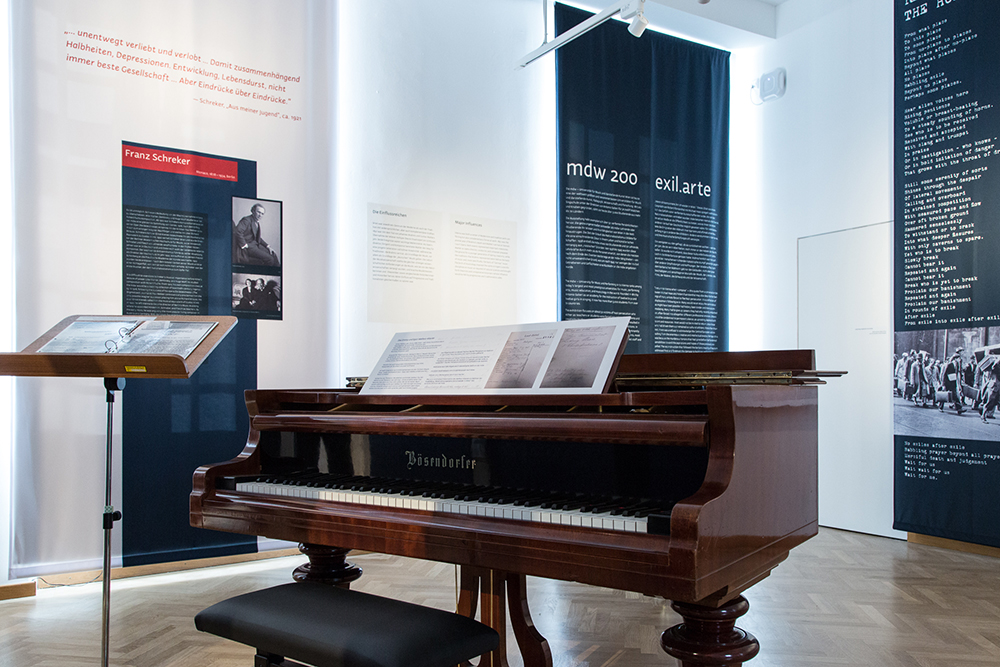2016 saw the mdw open its exil.arte Centre, the object of which is to focus scholarly and artistic attention on composers and musicians who were forced to flee, proscribed, and/or murdered by the National Socialists.
Among other things, this includes the study of artistic estates willed to the mdw or donated prior to the owner’s death, estates that will also form the basis of concerts, workshops, symposia, exhibitions, etc. The Centre’s upcoming exhibition will introduce a selection of materials (most prominently the piano of Egon Wellesz) never before seen by the public.
The exil.arte Centre will also serve the mdw as a place at which to investigate how the concept of restitution should be understood and interpreted in the case of music.

exil.arte exposition ©Stephan Polzer
“I return to Vienna when I compose”—this quote from a conversation between Michael Haas and Robert Fürstenthal may also describe the feelings of many artists forced to flee Nazi persecution. It is a reflection of displacement following exile. Many would never enjoy the same status as might have been possible had history been kinder and more accommodating. Many had to give up careers they had only recently started, often forced into altogether different professions. Others would be condemned to permanent silence, as uprooting depleted both talent and resources.
Most would not be invited to return, since those who had driven them out remained as cultural arbiters. More often than not, there was a refusal to acknowledge the Central European void resulting from the enormous creative and intellectual exodus. Perhaps this was because the murderous horrors that had gone before had hardened sensibilities toward the aspirations and hopes of those previously expelled. The reconstruction that followed the barbaric insanity of Nazism addressed first and foremost the damage to buildings and not the harm to the deep cultural roots of music, literature, cinema, theater, the fine arts, and science.
The exil.arte Center of the mdw is situated in exactly the same building where talented musicians studied and pioneering lecturers taught. Between 1933 and 1938, many of the mdw’s most gifted individuals were forced to flee the Nazi terror. Some managed to continue their careers, while others found they had lost the very foundations of their work. An entire generation of younger musicians was deprived by this cultural catastrophe of ever being admitted to the mdw. The first exhibition opening the newly founded exil.arte Center at the mdw focuses on the lost musical legacy and the fates of these many and diverse lives.
Opening hours
October – December
Tue – Sat, 2.30 pm – 7.30 pm
Closed on holidays!
Guided tours
on request: info@exilarte.at
also for student groups
Free admission!
Room A 0116
Lothringer Straße 18
1030 Vienna
Links & Contact
exil.arte Center
Lucia Lajcakova, project assistant
Tel.: +43 1 71155-3533
E-Mail: lajcakova-l@mdw.ac.at



